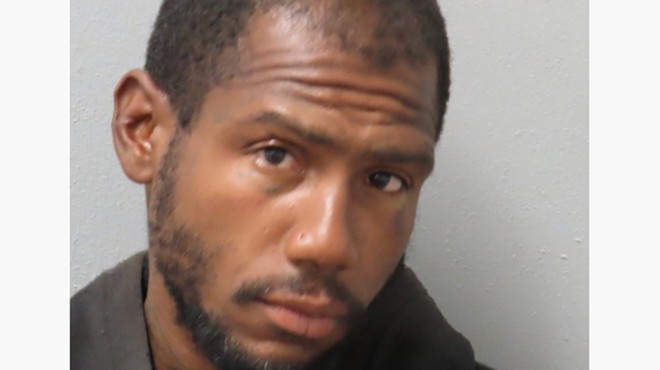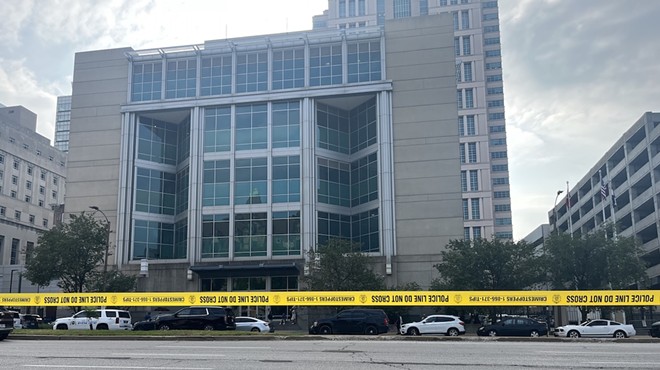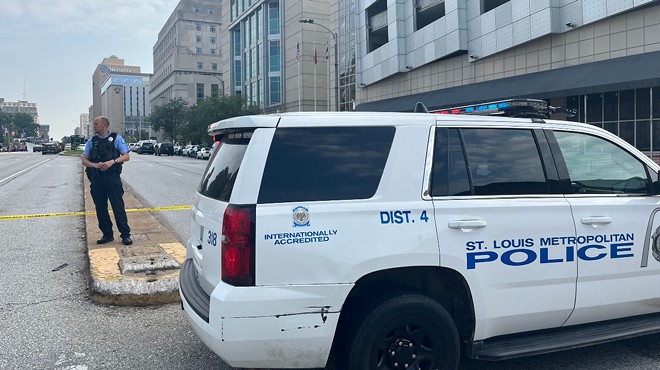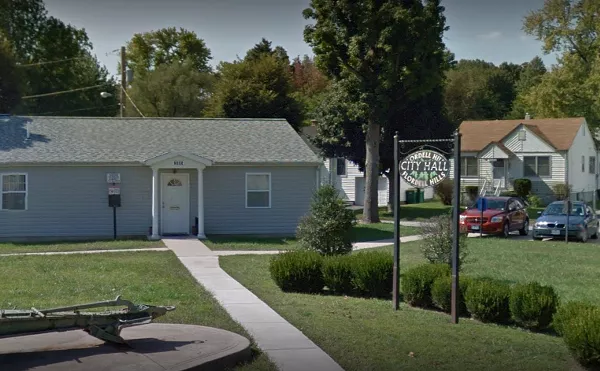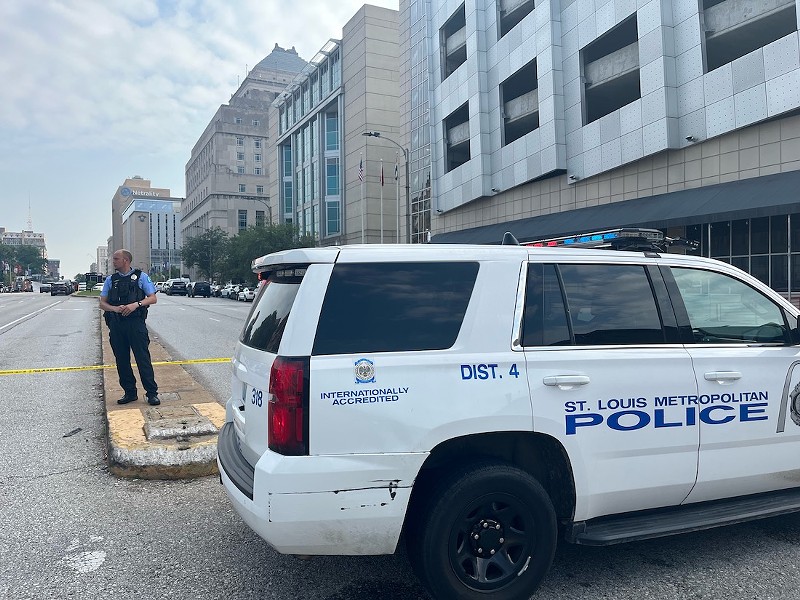
Well after a SWAT team put an end to the hostage situation at the St. Louis City Justice Center Tuesday morning, chaos continued to reign at the jail for days, according to multiple attorneys with clients in the facility.
Attorneys speak of detainees not being adequately fed or clothed, being housed in an area that is supposed to be a temporary transfer point, and being denied access to legal counsel. One lawyer tells the RFT he has heard from federal authorities and that he believes they may be investigating the facility.
Criminal defense attorney Robert Taaffe says that he and other attorneys with his firm tried twice to enter the jail on Wednesday to meet with a client, a full day after the hostage situation was reportedly resolved, and that they were turned away. Taaffe says they then went to a judge asking for a court order to force the jail to let them in.
They ultimately didn't need the order and were able to meet with the client yesterday, Taaffe says, but it took two hours to enter the facility. When they did meet with the client, he was wearing only underwear and jail-issue flip flops.
"They brought our guy in. He was shackled. He had [only] his underwear on, and he was telling us that he wasn't getting enough food," Taaffe says. "He doesn't have a cup. He doesn't have a toothbrush."
Taaffe says that it's a violation of a detainee's constitutional rights to not be able to meet with their legal representation.
"I don't care what it's for," Taaffe says. "You can understand a temporary emergency, like on Tuesday, but they should have been letting us see him online still. They were saying, 'Oh, we don't know where he's at.'"
And Taaffe isn't the only attorney who tells the RFT they've had a client seemingly lost in the jail's system in the past few days.
Matt Mahaffey of the state public defender's office says that at least on one occasion since Tuesday, attorneys with his office have attempted to see a client supposedly housed on the fourth floor, where the hostage situation played out. "The jail didn’t know where the person was," Mahaffey says.
The RFT reached out to the city for comment Wednesday about allegations including a lack of food and two recent suicide attempts in the jail. Department of Public Safety spokesman Monte Chambers replied in an email Friday evening saying that, "There were mental health professionals who provided an assessment for some detainees this week following the incident." About the alleged lack of food service, he says that a meal was served late in the evening on the day of the hostage situation.
Multiple attorneys tell the RFT that since Tuesday, the court system has been doing docket hearings over video — a COVID-related measure that had gone away this past January. Conducting the hearings via video complicates detainees' ability to confer with attorneys prior to them.
Normally the jail has space that serves as a transfer area for detainees moving from the jail to a court hearing in their case. But since Tuesday, that space has become ad-hoc housing for detainees who had been previously housed on the fourth floor of the facility.
"The Justice Center has moved all the people from that fourth floor down into the big pen where they normally keep the people who are going across the street to court," says defense attorney Terry Niehoff, who also has clients in the facility. "By putting everybody in those cells, from the fourth floor, there's no way that people can be taken from the jail to the courthouse."
The fallout from Tuesday's hostage situation has also brought to light tensions between two entities tasked with making the jail and the courts run smoothly: the city's Division of Corrections and the city's Sheriff Department.
In most counties, the sheriff is responsible for running the jail. In St. Louis city, the sheriff's deputies transfer detainees in and out of the facility, but correctional officers — who report to Corrections Commissioner Jennifer Clemons-Abdullah, not Sheriff Vernon Betts — are responsible for jail operations.
With the area of the jail usually used as a transfer point now serving as housing, sheriff’s deputies have been unable to retrieve detainees for court dates. Taaffe says that an attorney with his firm witnessed the problem first-hand at what was supposed to be a bond hearing earlier this week.
"The sheriff's deputies weren't weren't allowed to get access to the guys. And they're technically the sheriff's prisoners. The deputies are like, 'These are our prisoners. And you're saying that we can't have access to them?'"
Taaffe adds, "Which is completely illegal."
Niehoff says that since Tuesday he's been contacted by a federal prosecutor with the U.S. Attorney’s Office in St. Louis. Niehoff says the prosecutor wanted to talk to him because he represents both people detained in the facility and has also represented guards accused of misconduct.
"I think they're looking at the jail administration," Niehoff says of his conversation with the federal authorities.
This story has been updated with comments from the Department of Public Safety.
or follow on Twitter at @RyanWKrull.
Subscribe to Riverfront Times newsletters.
Follow us: Apple News | Google News | NewsBreak | Reddit | Instagram | Facebook | Twitter | Or sign up for our RSS Feed

